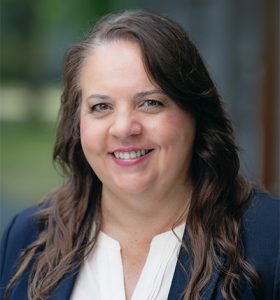
To the University of British Columbia community,
A collective of approximately 30 Indigenous faculty and staff from UBC Vancouver recently gathered to discuss public statements that question or deny Indigenous rights, title, and the historical record of Indian Residential School abuses and deaths. We stand together as Indigenous peoples to express deep concern about these claims and to reaffirm the truth of our histories, laws, and lived experiences.
Indigenous nations across Canada hold inherent rights to their lands. These rights are grounded in Indigenous legal traditions that long predate Canadian law and are recognized and affirmed in Section 35 of the Canadian Constitution. These rights are enduring — not subject to political cycles or public debate — and have never been extinguished. Acknowledging unceded Indigenous territories and the findings of the Truth and Reconciliation Commission is not an act of charity or opinion — it is a recognition of fact. In today’s climate of misinformation and disinformation, it is more important than ever to speak clearly and responsibly about these truths. We do so here, with respect and gratitude for the Indigenous nations whose territories host UBC’s campuses — including the Musqueam people at Point Grey, and the Syilx Okanagan Nation in the Interior as the traditional stewards of these lands who have been here since time immemorial.
We also note with concern recent efforts to diminish or dispute the legacy of the Indian Residential School system and the ongoing relevance of the Truth and Reconciliation Commission’s Calls to Action. Such narratives, whether intentional or not, contribute to the ongoing burden carried by survivors and their families. They challenge not only historical truth, but the moral responsibility we all share to understand and address the lasting impacts of colonial systems in Canada.
At the same time, we are aware of broader criticism being directed at efforts in equity, diversity, and inclusion. We acknowledge the impact these critiques can have and express our support for those who remain committed to creating more inclusive, respectful, and informed institutions. The university’s ongoing commitment to the Indigenous Strategic Plan grounds our labour and gives strength to how we teach, work and live at UBC.
As Indigenous faculty and staff, we also acknowledge that many of us are guests on these lands. At UBC Point Grey, we live and work on the traditional, ancestral, and unceded territory of the Musqueam people. We honour our responsibilities to the Musqueam as well as to the Syilx Okanagan Nation and all Indigenous nations whose lands support UBC’s presence and purpose. The First Nations House of Learning remains steadfast in its mission as the ‘home away from home’ for all Indigenous students, staff and faculty. We move forward with these words given by late Elder Vince Stogan of Musqueam and acknowledge the work of the first Director Verna Kirkness and others who established the Longhouse by carrying their lessons and teachings within us. It is in this way we continue to honour those who came before and that guides how we support those who come after.
This moment calls for care, clarity, and a continued commitment to progress. By standing shoulder to shoulder against hatred and oppression we can collectively work together for a more respectful and inclusive society. Let us be guided by love and not hate. Let us belong to a community that recognizes our similarities are greater than our differences. We remain focused on actions that honour Indigenous rights, support respectful academic engagement, and foster a university community grounded in truth and mutual respect. Let us live by these values.

In solidarity,
Joely Viveiros, Acting Director, First Nations House of Learning
On behalf of a collective of Indigenous staff and faculty at UBC